
The Heartbeat of Ho Chi Minh City: District 3
District 3 is a vibrant and historically rich neighbourhood, offering a perfect blend of tradition and modernity. Known for its wide, tree-lined boulevards and French colonial architecture, District 3 provides a scenic and immersive experience for visitors. The area is less crowded than the bustling District 1, allowing tourists to explore its hidden gems at a leisurely pace. One of the highlights of District 3 is the War Remnants Museum, where visitors can gain deep insights into Vietnam's tumultuous history. This district is also home to the Jade Emperor Pagoda, an ornate temple that is a must-visit for those interested in Vietnamese spirituality and architecture. Strolling through the neighbourhood, you will encounter beautiful colonial buildings, charming cafes, and boutique shops that offer a glimpse into the local lifestyle. District 3 is a food lover's paradise. From street food stalls offering delicious pho and banh mi to upscale restaurants serving traditional Vietnamese cuisine, there is something for every palate. Don’t miss out on trying the local coffee at one of the many quaint cafes, where you can relax and people-watch. For those who enjoy greenery, Le Van Tam Park is a lovely place to unwind. This park is a popular spot among locals for exercising and socializing, providing tourists with an authentic slice of daily life in Ho Chi Minh City. Overall, District 3 is a perfect destination for travelers looking to explore the cultural and historical aspects of the city while enjoying modern comforts.
Local tips in District 3
- Visit the War Remnants Museum early in the day to avoid crowds and heat.
- Wear comfortable shoes for exploring the tree-lined boulevards and colonial architecture.
- Try the local coffee at one of the many charming cafes in the neighbourhood.
- Bring cash as some street food vendors and smaller shops may not accept cards.
- Spend an afternoon relaxing at Le Van Tam Park to experience local life.
The Heartbeat of Ho Chi Minh City: District 3
District 3 is a vibrant and historically rich neighbourhood, offering a perfect blend of tradition and modernity. Known for its wide, tree-lined boulevards and French colonial architecture, District 3 provides a scenic and immersive experience for visitors. The area is less crowded than the bustling District 1, allowing tourists to explore its hidden gems at a leisurely pace. One of the highlights of District 3 is the War Remnants Museum, where visitors can gain deep insights into Vietnam's tumultuous history. This district is also home to the Jade Emperor Pagoda, an ornate temple that is a must-visit for those interested in Vietnamese spirituality and architecture. Strolling through the neighbourhood, you will encounter beautiful colonial buildings, charming cafes, and boutique shops that offer a glimpse into the local lifestyle. District 3 is a food lover's paradise. From street food stalls offering delicious pho and banh mi to upscale restaurants serving traditional Vietnamese cuisine, there is something for every palate. Don’t miss out on trying the local coffee at one of the many quaint cafes, where you can relax and people-watch. For those who enjoy greenery, Le Van Tam Park is a lovely place to unwind. This park is a popular spot among locals for exercising and socializing, providing tourists with an authentic slice of daily life in Ho Chi Minh City. Overall, District 3 is a perfect destination for travelers looking to explore the cultural and historical aspects of the city while enjoying modern comforts.
Iconic landmarks you can’t miss
Ben Thanh Market
Explore Ben Thanh Market, a cultural landmark in Ho Chi Minh City, offering local cuisine, unique handicrafts, and a vibrant shopping experience.
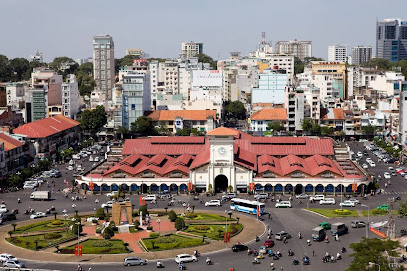
Independence Palace
Explore the Independence Palace in Ho Chi Minh City, a historic landmark that embodies Vietnam's culture, architecture, and resilience.
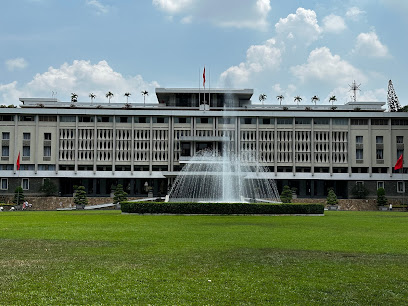
War Remnants Museum
Explore the poignant history of the Vietnam War at the War Remnants Museum, a must-visit destination for understanding resilience and remembrance.
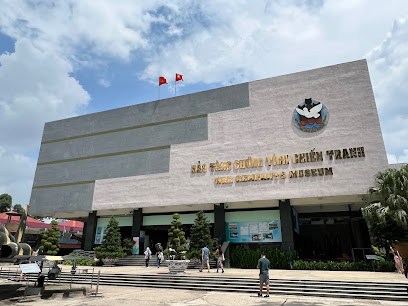
Saigon Skydeck
Discover breathtaking views of Ho Chi Minh City from the Saigon Skydeck, an iconic observation deck in the Bitexco Financial Tower.
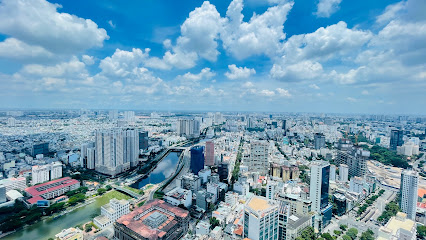
Tan Dinh Church
Discover the stunning Tan Dinh Church in Ho Chi Minh City, an architectural marvel featuring vibrant colors and rich cultural history.
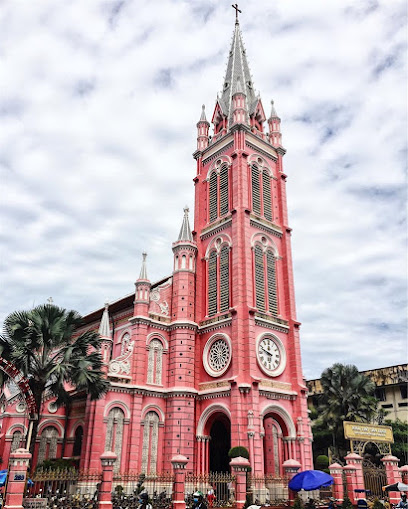
Vinh Nghiem Buddhist Temple
Experience the serene beauty of Vinh Nghiem Buddhist Temple, a spiritual haven in Ho Chi Minh City, rich in tradition and tranquil charm.

Ho Chi Minh Statue
Explore the Ho Chi Minh Statue, a historic landmark in Ho Chi Minh City that symbolizes Vietnam's rich heritage and cultural legacy.
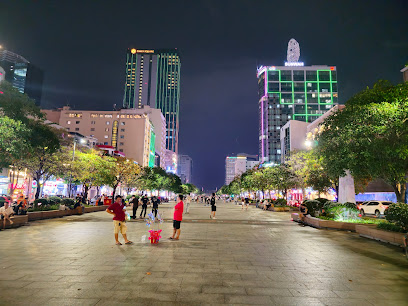
Xa Loi Buddhist Temple
Discover tranquility and cultural richness at Xa Loi Buddhist Temple, a serene retreat in the heart of Ho Chi Minh City, Vietnam.
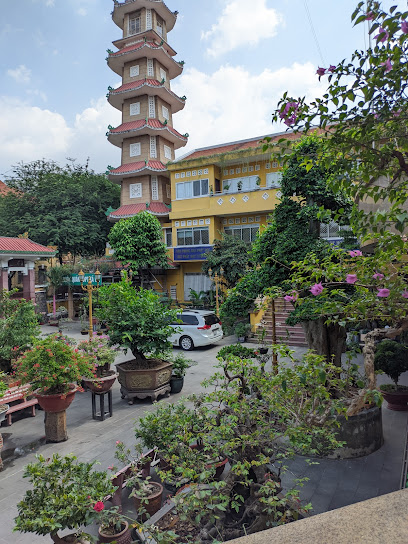
Wat Chantaransay - Khmer Buddhist Temple
Discover the serene beauty and rich cultural heritage of Wat Chantaransay, a hidden Khmer Buddhist temple in the heart of Ho Chi Minh City.
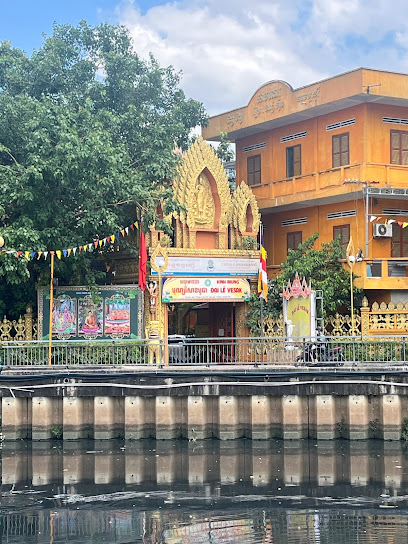
Minh Dao Buddhist Temple
Discover tranquility at Minh Dao Buddhist Temple, a beautiful sanctuary in Ho Chi Minh City, offering peace, culture, and spiritual insight.
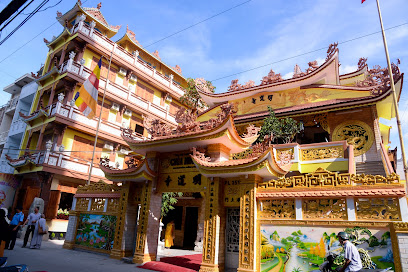
Di tích mộ cổ họ Lâm
Explore the rich history and serene beauty of Di tích mộ cổ Lâm, a captivating landmark in Ho Chi Minh City that embodies Vietnam's cultural heritage.
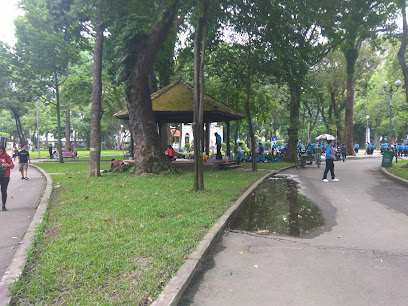
Viewpoint Chùa Pháp Hoa
Discover the serene beauty and cultural richness of Chùa Pháp Hoa, a stunning viewpoint in Ho Chi Minh City, perfect for peaceful reflection and breathtaking views.
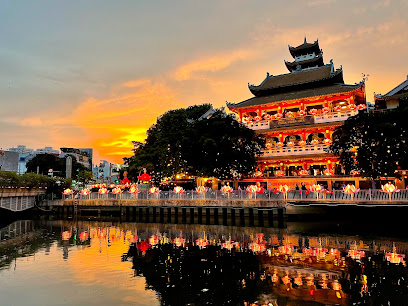
Unmissable attractions to see
Saigon Skydeck
Discover the breathtaking views of Ho Chi Minh City from the Saigon Skydeck, an iconic observation deck in the heart of the city.
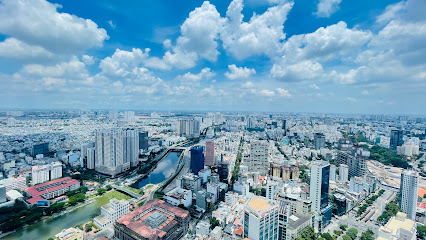
South-Vietnamese Women Museum
Explore the South-Vietnamese Women Museum, where history, culture, and the vital contributions of women come to life in the heart of Ho Chi Minh City.
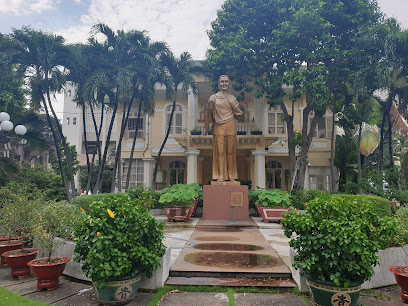
Essential places to dine
Hum, Cafe & Restaurant
Discover the best vegetarian dining at Hum Cafe & Restaurant in Ho Chi Minh City—where health meets flavor in every bite.
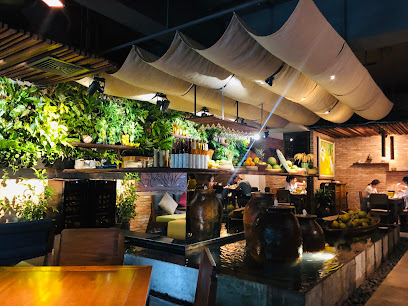
ELSOL Meat&Wine
Experience the rich flavors of traditional American steakhouse cuisine at ELSOL Meat&Wine in Ho Chi Minh City.
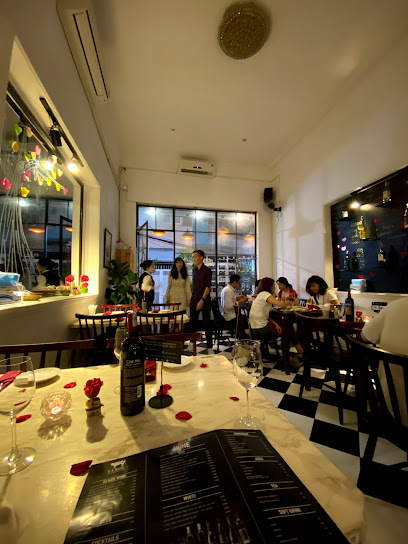
Nhà hàng Việt Phố
Experience authentic Vietnamese cuisine at Nhà Hàng Việt Phố in Ho Chi Minh City - a culinary journey through local flavors.
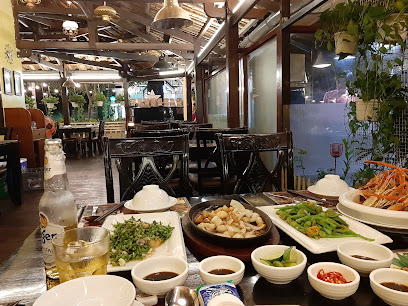
Cơm Niêu Sài Gòn
Discover authentic central Vietnamese cuisine at Cơm Niêu Sài Gòn, where every dish tells a story of tradition and flavor.
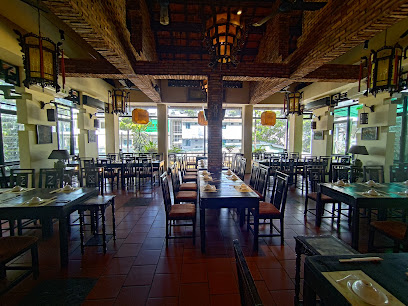
Chay Garden Quận 3 - Vegetarian Restaurant & Coffee
Discover exquisite vegetarian cuisine at Chay Garden Quận 3 in Ho Chi Minh City - where health meets flavor in every dish.
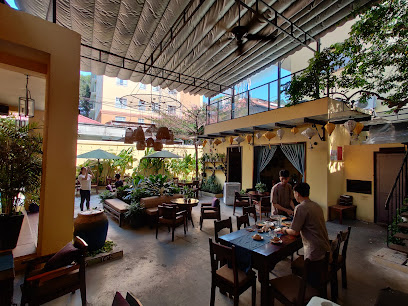
Nhà Hàng Ăn Uống Sài Gòn 3
Discover authentic Chinese flavors at Nhà Hàng Ăn Uống Sài Gòn 3, where delightful dim sum meets vibrant dining in Ho Chi Minh City.
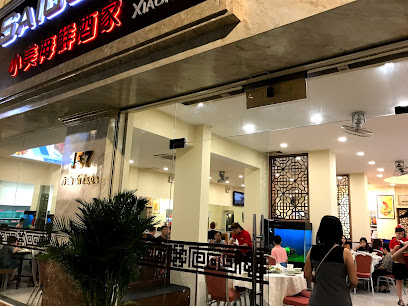
CTY Kitchen + Bar
Experience the vibrant fusion of Vietnamese flavors at CTY Kitchen + Bar in the heart of Ho Chi Minh City.
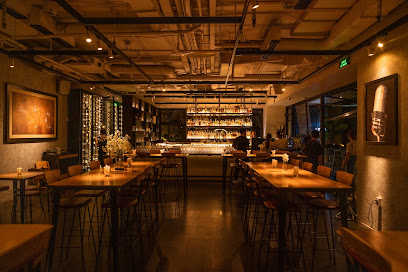
The Chopsticks Saigon
Discover authentic Vietnamese flavors at The Chopsticks Saigon, where culinary excellence meets rich cultural heritage in Ho Chi Minh City.
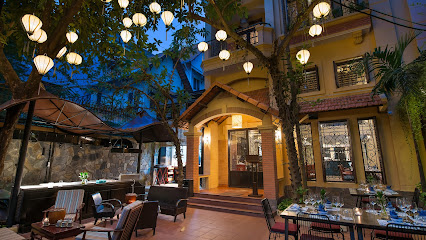
HOME Saigon - HOME Vietnamese Restaurant
Discover authentic Vietnamese flavors at HOME Saigon - a culinary haven in Ho Chi Minh City offering exquisite dishes and memorable dining experiences.
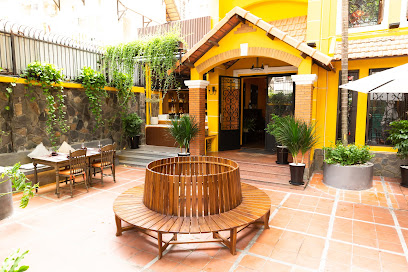
La Maison Wine Dining
Savor authentic French cuisine at La Maison Wine Dining, where exquisite flavors meet an elegant ambiance in Ho Chi Minh City.
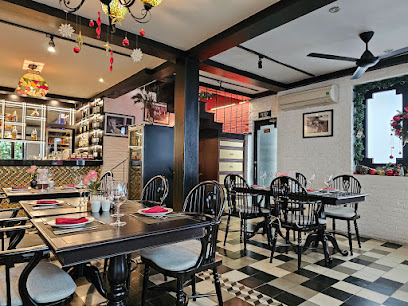
Markets, malls and hidden boutiques
Takashimaya Ho Chi Minh City
Discover the ultimate shopping paradise in Ho Chi Minh City at Takashimaya, where luxury meets local culture in a vibrant atmosphere.
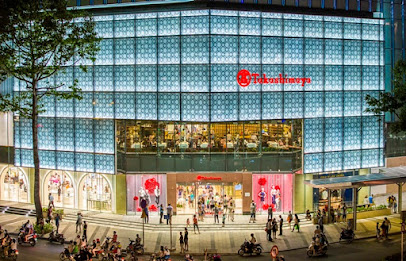
Saigon Mall
Explore the vibrant Saigon Mall, where shopping, dining, and entertainment converge in the heart of Ho Chi Minh City.
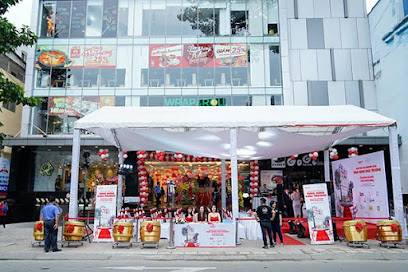
Moji - Phụ Kiện & Quà Tặng
Explore Moji in Ho Chi Minh City for unique gifts and souvenirs that capture the spirit of Vietnam, perfect for every occasion.
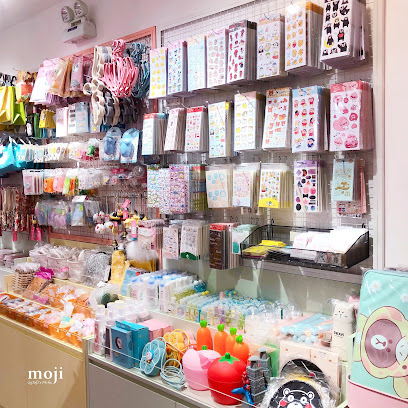
Vuông Shop
Discover unique gifts and exquisite perfumes at Vuông Shop in Ho Chi Minh City, a treasure trove for shoppers and culture enthusiasts alike.
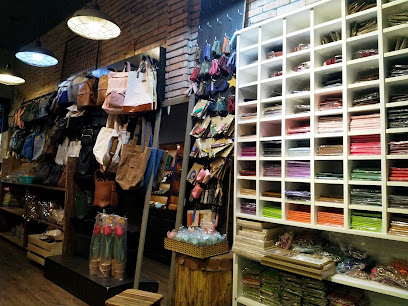
OHQUAO Concept Store
Explore OHQUAO Concept Store in Ho Chi Minh City for unique gifts, local fashion, and a taste of Vietnamese creativity.
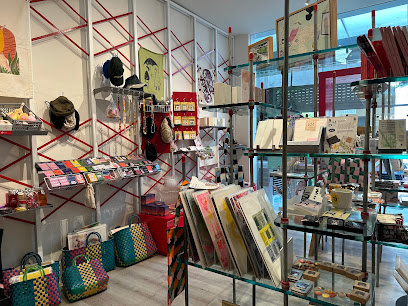
Ốc Sên Shop
Explore the charm of Vietnam through unique gifts at Ốc Sên Shop, where local artistry meets a vibrant shopping experience in Ho Chi Minh City.
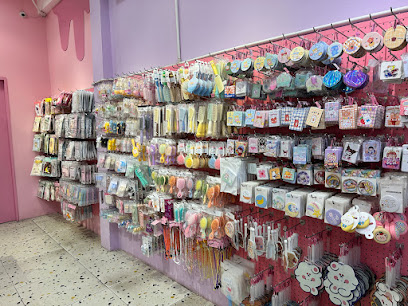
KPOP Shop - izi2buy.com
Explore the electrifying world of K-pop at KPOP Shop in Ho Chi Minh City, where music meets Vietnamese culture through unique souvenirs and merchandise.
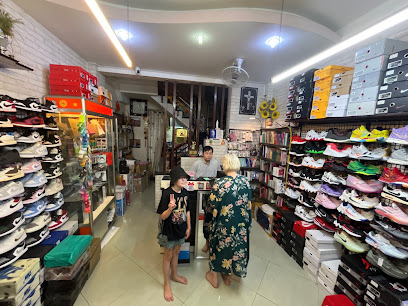
Kamie Quận 3
Explore the trendy Kamie Women's Clothing Store in Quận 3, Ho Chi Minh City, for the latest styles and unique fashion pieces that reflect local flair.
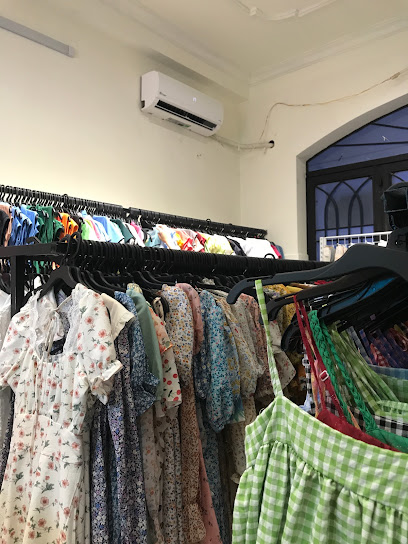
Mozaic Space
Explore the vibrant fashion scene at Mozaic Space, a unique clothing store in Ho Chi Minh City offering locally designed styles and contemporary trends.
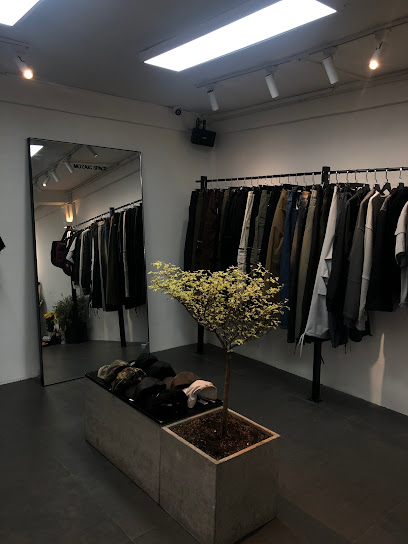
Hang Store - The Gift From Nature
Discover Hang Store in Ho Chi Minh City for unique, handcrafted gifts that embody the beauty and culture of Vietnam, perfect for souvenirs and mementos.
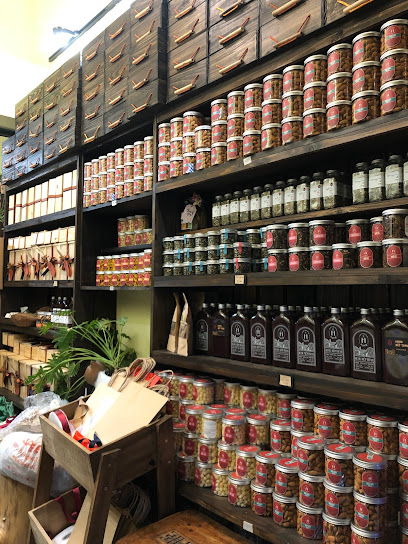
Essential bars & hidden hideouts
Acoustic Bar - Ngô Thời Nhiệm
Experience the vibrant nightlife of Ho Chi Minh City at Acoustic Bar - Ngô Thời Nhiệm, where live music brings the soul of the city to life.
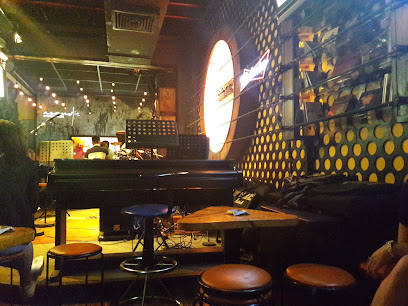
POCPOC Garden
Experience the vibrant ambiance of POCPOC Garden, a premier beer garden and gastropub in Ho Chi Minh City, where relaxation meets culinary delight.
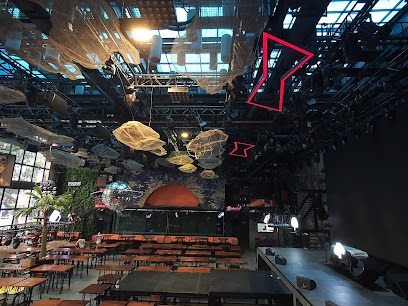
BiaCraft Le Ngo Cat | D.3
Discover the vibrant flavors of craft beers and gourmet cuisine at BiaCraft Le Ngo Cat in Ho Chi Minh City.
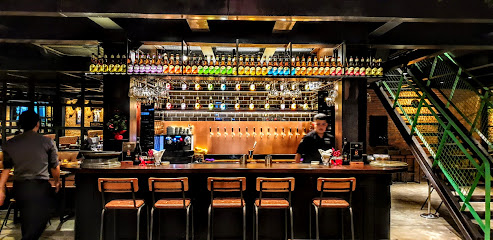
Pasteur Street Craft Beer - Ngô Thời Nhiệm Taproom & Restaurant
Discover the vibrant flavors of Vietnam at Pasteur Street Craft Beer - Ngô Thời Nhiệm, where local brews meet delicious cuisine in a lively atmosphere.
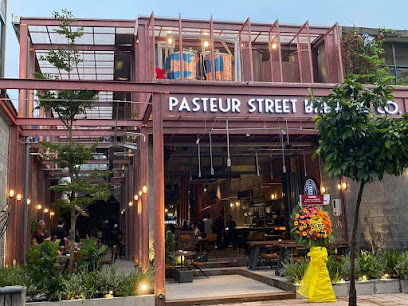
B3 beer
Discover the vibrant flavors of craft beer at B3 Beer, a premier brewpub and gastropub in the heart of Ho Chi Minh City.
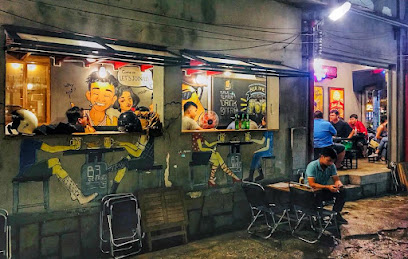
Acoustic Bar - Nam Kỳ Khởi Nghĩa
Discover the heart of Ho Chi Minh City's nightlife at Acoustic Bar - Nam Kỳ Khởi Nghĩa, where cocktails meet captivating live music.
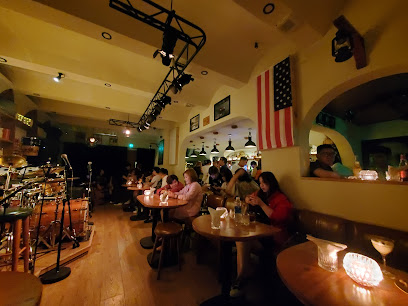
Den The Bar
Discover Den The Bar in Ho Chi Minh City for a unique blend of creative cocktails and a cozy atmosphere perfect for nightlife enthusiasts.
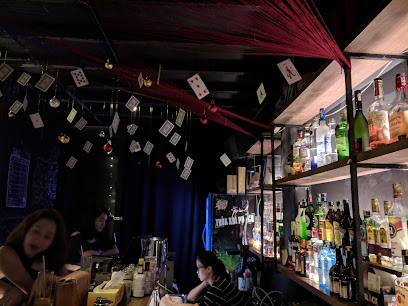
Dear Bar
Experience the unique mixology and intimate ambiance of Dear Bar, a hidden cocktail haven in Ho Chi Minh City, perfect for night owls and cocktail lovers.
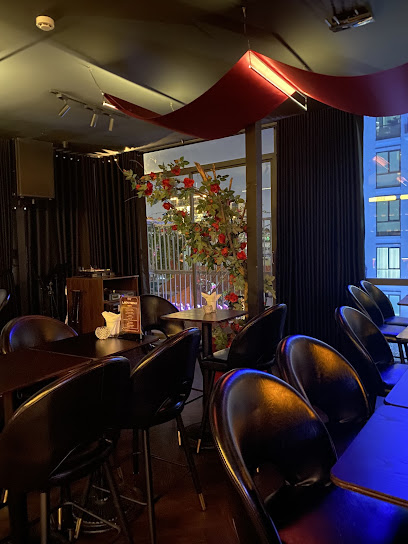
A.L - Cocktail Bar
Discover A.L - Cocktail Bar for unique cocktails and a lively atmosphere in the heart of Ho Chi Minh City, a must-visit for nightlife enthusiasts.
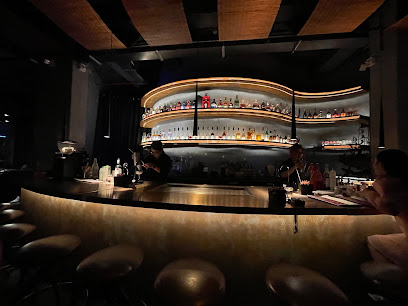
Phẩy Cocktail
Discover the vibrant nightlife of Ho Chi Minh City at Phẩy Cocktail, where expertly crafted cocktails meet a chic and welcoming atmosphere.
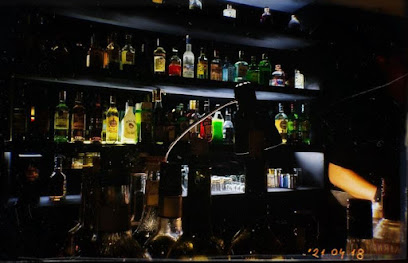
Local Phrases
-
- HelloXin chào
[sin chow] - GoodbyeTạm biệt
[tam byet] - YesCó
[kaw] - NoKhông
[kohm] - Please/You're welcomeLàm ơn
[lam uhn] - Thank youCảm ơn
[kahm uhn] - Excuse me/SorryXin lỗi
[sin loy] - How are you?Bạn khỏe không?
[bahn kwee kohm?] - Fine. And you?Khỏe, còn bạn?
[kwee, kawn bahn?] - Do you speak English?Bạn nói tiếng Anh không?
[bahn noy tee-eng ahn kohm?] - I don't understandTôi không hiểu
[toy kohm hew]
- HelloXin chào
-
- I'd like to see the menu, pleaseCho xem menu với
[choh sem menu vwuh] - I don't eat meatTôi không ăn thịt
[toy kohm an tit] - Cheers!Chúc sức khỏe!
[chuhk sook kwee] - I would like to pay, pleaseTôi muốn thanh toán, vui lòng
[toy moon thanh toan, vwui long]
- I'd like to see the menu, pleaseCho xem menu với
-
- Help!Cứu!
[kew] - Go away!Đi ra!
[dee rah] - Call the Police!Gọi cảnh sát!
[goy kahng saht] - Call a doctor!Gọi bác sĩ!
[goy bahk see] - I'm lostTôi lạc đường
[toy lack doong] - I'm illTôi ốm
[toy ohm]
- Help!Cứu!
-
- I'd like to buy...Tôi muốn mua...
[toy moon mwa] - I'm just lookingTôi chỉ xem thôi
[toy chee sem toy] - How much is it?Nó giá bao nhiêu?
[noh zah bao nyew] - That's too expensiveĐắt quá
[daht kwah] - Can you lower the price?Có thể giảm giá được không?
[kaw te zem zah dohk kohm]
- I'd like to buy...Tôi muốn mua...
-
- What time is it?Bây giờ là mấy giờ?
[bahy zoh la my yoh] - It's one o'clockĐây là một giờ
[day la moot yoh] - Half past (10)Mười giờ rưỡi
[moowee yoh rwee] - MorningBuổi sáng
[bwowee sahng] - AfternoonBuổi chiều
[bwowee chee-ew] - EveningBuổi tối
[bwowee toy] - YesterdayHôm qua
[hohm kwah] - TodayHôm nay
[hohm nigh] - TomorrowNgày mai
[nyai my] - 1Một
[moot] - 2Hai
[high] - 3Ba
[bah] - 4Bốn
[bohn] - 5Năm
[nahm] - 6Sáu
[sow] - 7Bảy
[bahy] - 8Tám
[tahm] - 9Chín
[cheen] - 10Mười
[moowee]
- What time is it?Bây giờ là mấy giờ?
-
- Where's a/the...?Chỗ...ở đâu?
[choh...uh dah-oo?] - What's the address?Địa chỉ là gì?
[dee-ah chee la zee?] - Can you show me (on the map)?Bạn có thể chỉ cho tôi (trên bản đồ) không?
[bahn kaw te chee cho toy (trern bahn doh) kohm?] - When's the next (bus)?Khi nào là chuyến xe buýt tiếp theo?
[khee nah-oh la chwee-en seh bwit tee-ep the-oh?] - A ticket (to ....)Một vé (đến ...)
[moot veh (den ...)]
- Where's a/the...?Chỗ...ở đâu?
History of District 3
-
District 3, originally known as Gia Định, saw significant development during the French colonial period in the late 19th century. The French established administrative buildings, schools, and luxurious villas, many of which still stand today. This era introduced European architectural styles to the region, creating a blend of local and foreign influences that define the district's character.
-
In the early 20th century, District 3 became a hub for intellectuals and political activists. The area was home to many nationalist movements opposing French colonial rule. Notable figures, such as Phan Boi Chau and later Ho Chi Minh, were involved in revolutionary activities that sought to liberate Vietnam from colonial oppression. The district served as a backdrop for rallies and meetings that would shape the future of the nation.
-
During the Vietnam War, District 3 experienced intense conflict and upheaval. The area was strategically important, with numerous military installations and hospitals. The war left a significant mark on the district, evident in sites such as the War Remnants Museum, which documents the struggles and resilience of the Vietnamese people during this turbulent time.
-
Following the reunification of Vietnam in 1975, District 3 underwent reconstruction and urbanization efforts. Many historical buildings were repurposed, and new infrastructure projects were undertaken to accommodate the growing population. The district became known for its cultural institutions, parks, and vibrant community life, reflecting the resilience and adaptability of its residents.
-
Today, District 3 is celebrated for its diverse cultural landscape. It is home to numerous temples, churches, and cultural centers, showcasing a mix of Buddhist, Catholic, and traditional Vietnamese influences. The district hosts various festivals and events that highlight its rich heritage, making it a vibrant area for both locals and visitors to explore.
District 3 Essentials
-
District 3 is centrally located in Ho Chi Minh City and is easily accessible from other neighborhoods. From Ben Thanh Market in District 1, you can take a short taxi ride, which usually costs around 50,000 VND ($2.20). Alternatively, local buses such as Bus 3 or Bus 30 connect District 1 to District 3. If you're coming from Tan Son Nhat International Airport, taxis and ride-hailing apps like Grab are the most convenient options, taking approximately 30 minutes depending on traffic.
-
District 3 is a walkable neighborhood with many attractions within walking distance. For longer distances, motorbike taxis (xe ôm) and traditional taxis are widely available. Grab is also a popular app for easy transportation. Bicycles can be rented from various shops, and cycling is a pleasant way to explore the area. Public buses operate throughout the district, but schedules can be irregular, so check local timetables.
-
District 3 is generally safe for tourists, but standard precautions should be taken. Avoid walking alone at night in poorly lit areas, particularly near the outskirts of the district. Pickpocketing can occur in crowded areas, so keep your belongings secure. Areas around the tourist spots may have a higher concentration of scams, so stay alert and be cautious when approached by strangers.
-
In case of an emergency, dial 113 for police assistance, 115 for medical emergencies, and 114 for fire services. Local hospitals and clinics are available, with FV Hospital and Hanh Phuc International Hospital being well-regarded. It’s advisable to have travel insurance that covers health emergencies. For minor health issues, pharmacies are readily accessible throughout the district.
-
Fashion: Do dress modestly, especially when visiting temples or pagodas. Avoid overly revealing clothing. Religion: Do respect local customs; when visiting religious sites, remove your shoes and speak quietly. Public Transport: Do offer your seat to the elderly and disabled. Don’t eat or drink on public buses. Greetings: Do greet with a nod or a smile; handshakes are common among men. Eating & Drinking: Do try local street food and accept invitations to eat; don’t waste food, as this is considered disrespectful.
-
To experience District 3 like a local, visit the Le Van Sy Street area for its vibrant cafes and eateries where you can enjoy authentic Vietnamese coffee. Explore the small alleyways to discover hidden gems, including local markets and street food stalls. Engage with local vendors and try dishes like Banh Mi and Pho. If possible, attend a local festival or event to immerse yourself in the culture.
Trending Landmarks in District 3
Nearby Cities to District 3
-
Things To Do in Vung Tau
-
Things To Do in Can Tho
-
Things To Do in Phan Thiet
-
Things To Do in Mui Ne
-
Things To Do in Kratie
-
Things To Do in Phnom Penh
-
Things To Do in Dalat
-
Things To Do in Buon Ma Thuot
-
Things To Do in Kep
-
Things To Do in Kampot
-
Things To Do in Phu Quoc
-
Things To Do in Sihanoukville
-
Things To Do in Nha Trang
-
Things To Do in Koh Rong
-
Things To Do in Koh Kong










